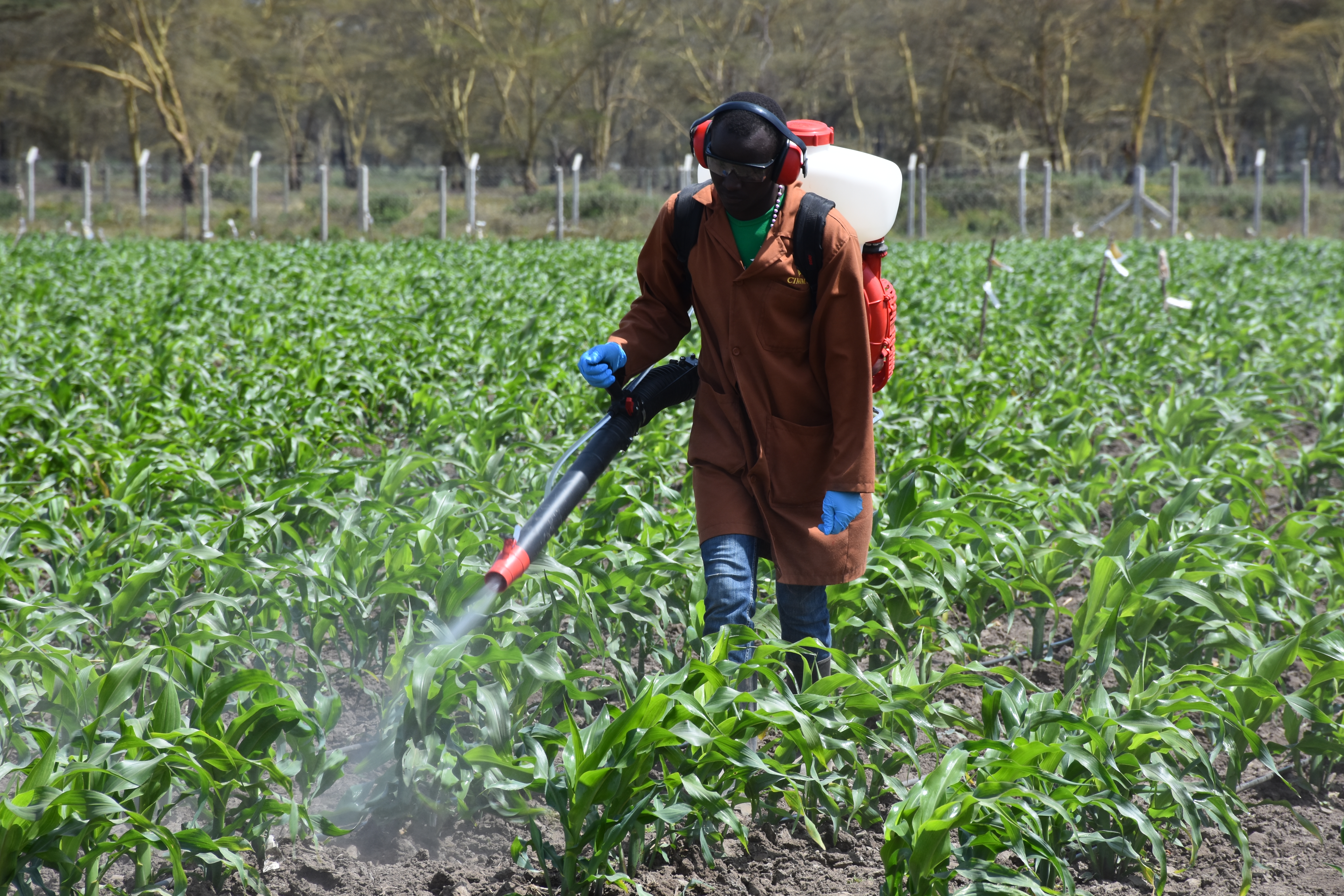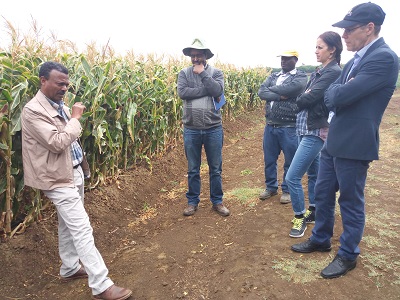
From July 22–26, the Stress Tolerant Maize for Africa (STMA) project organized a training in Adama, Ethiopia to update maize technicians on recent developments in maize research, data collection and seed production. The training was designed to stimulate good breeding programs, good data collection in trial and nurseries, production of better quality seed and development of improved varieties. Around 25 trainees attended, mainly from maize breeding research centers. Similar trainings were conducted in all STMA project countries over the last three and a half years.
CIMMYT staff from Ethiopia, Kenya and Zimbabwe and staff from the Ethiopian Institute of Agricultural Research (EIAR) Bako Research Center delivered training on methodologies and gave practical demonstrations on tablets. Presentations focused on the origin and botany of the maize plant, constraints to maize production in Ethiopia, data collection, breeding for abiotic stresses, new tools for phenotyping, maize lethal necrosis (MLN), and seed quality control.
Mandefro Nigussie, Director General of EIAR, said that the training was important because it addressed data collection. “If we are missing the data, we are missing the investment of the country,” he noted. He recognized CIMMYT’s culture in empowering research centers through trainings. The role of EIAR is to generate, test, disseminate and scale technologies. Therefore, having technicians who are aware of the recent developments in their areas is crucial.
Cosmos Magorokosho, maize breeder and STMA project leader, said that the core components of the training were to give technicians a strong understanding of the basics of maize and the physiology of maize plant. The knowledge they gained from this training will support them during data collection and when breeding for resistance to diseases and pests and improved seed production.
Upon completing five days training, all trainees received certificates along with the presentations and other relevant documents for future reference. CIMMYT maize breeder Dagne Wegary said he appreciated the active participation and dedication of the trainees and the interest they showed to improve their knowledge and skills. He reminded them that this is the start of a long journey and they will have to use the knowledge and skills gained to help farmers produce more and ensure food security. Trainees reflected that the training increased their existing knowledge in maize breeding and helped them to understand the current developments in the area. They said they would directly apply what they have learned and transfer the knowledge to other colleagues working in maize breeding.

 Innovations
Innovations 


